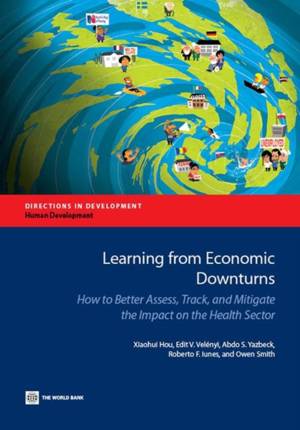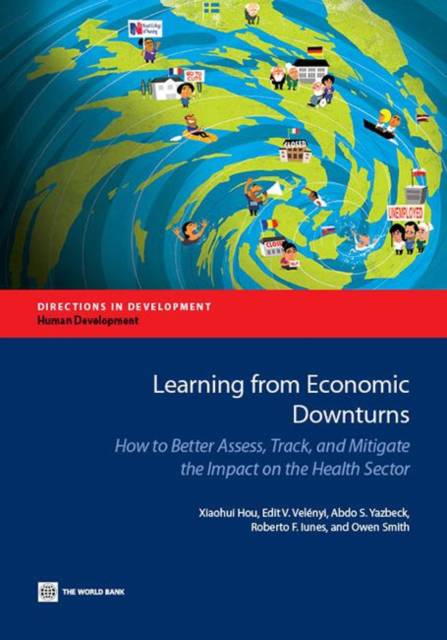
Je cadeautjes zeker op tijd in huis hebben voor de feestdagen? Kom langs in onze winkels en vind het perfecte geschenk!
- Afhalen na 1 uur in een winkel met voorraad
- Gratis thuislevering in België vanaf € 30
- Ruim aanbod met 7 miljoen producten
Je cadeautjes zeker op tijd in huis hebben voor de feestdagen? Kom langs in onze winkels en vind het perfecte geschenk!
- Afhalen na 1 uur in een winkel met voorraad
- Gratis thuislevering in België vanaf € 30
- Ruim aanbod met 7 miljoen producten
Zoeken
Learning from Economic Downturns
How to Better Assess, Track, and Mitigate the Impact on the Health Sector
Xiaohui Hou, Edit V Velényi, Abdo S Yazbeck, Roberto F Iunes, Owen Smith
€ 33,45
+ 66 punten
Omschrijving
Health and economic development are interconnected. Over the past decades, the health sector has become an increasingly important component of the global economy, evidenced by the growing trend of health expenditures as a share of GDP. The interconnectivity of health and economic development and the cyclical nature of economic performance have emphasized the critical need to build health sector resilience to prepare for inevitable economic downturns. The objective of the book is to raise awareness of the challenges that health systems, in both developing and developed countries, face in times of economic crisis and provide an Assessment, Tracking and Mitigation (A.T. M.) framework by which governments and policy makers can meet the critical challenge of health sector stabilization and resilience building. The A.T.M. framework emphasizes the importance of the interdependence of these three pillarsfor effective crisis response and strengthening health system resilience to economic shocks. The framework proposes that, in order to be effective in mitigation, governments and policy makers must possess or develop: (i) Tools to assess the health sector vulnerability to economic crisis. (ii) Tools, information systems, and data sources to track system and population level effects quickly during the crisis. (iii) Ability to implement effective policies to mitigate effects when a crisis hits. In conclusion, while the links between health and the overall economy are increasingly understood and appreciated, the role of health in an economic downturn is still not well understood or planned for. This book builds on the lessons of the most recent global financial crisis, especially in Europe and Central Asia and proposes a more effective role for the health sector as part of a safety net function and as a stabilizer for the population during a crisis. To mitigate the impacts of crises on vulnerable populations and assume the role of a stabilizer, the health sector must use assessment tools to identify system vulnerabilities, track to detect early impacts, and build targeted systems that are prepared to meet the challenges of the future. The experience and instruments in the Social Protection sector offer lessons and opportunities for collaboration with health.
Specificaties
Betrokkenen
- Auteur(s):
- Uitgeverij:
Inhoud
- Aantal bladzijden:
- 190
- Taal:
- Engels
- Reeks:
Eigenschappen
- Productcode (EAN):
- 9781464800603
- Verschijningsdatum:
- 11/10/2013
- Uitvoering:
- Paperback
- Formaat:
- Trade paperback (VS)
- Afmetingen:
- 178 mm x 254 mm
- Gewicht:
- 340 g

Alleen bij Standaard Boekhandel
+ 66 punten op je klantenkaart van Standaard Boekhandel
Beoordelingen
We publiceren alleen reviews die voldoen aan de voorwaarden voor reviews. Bekijk onze voorwaarden voor reviews.









